Mathematical reasoning Numbers Worksheets for Ages 4-6
6 filtered results
-
From - To
Discover our engaging Mathematical Reasoning Numbers Worksheets designed specifically for children aged 4-6. These interactive worksheets provide a fun and educational way for young learners to develop essential math skills. Tailored to promote number recognition, counting, and problem-solving abilities, each worksheet encourages children to think critically and cultivate their reasoning skills. With a variety of captivating exercises, your child will explore numbers in multiple contexts, enhancing their understanding and confidence in mathematics. Perfect for home or classroom use, our worksheets offer a valuable resource for parents and educators aiming to foster a solid foundation in mathematical reasoning. Start your child's math journey today!
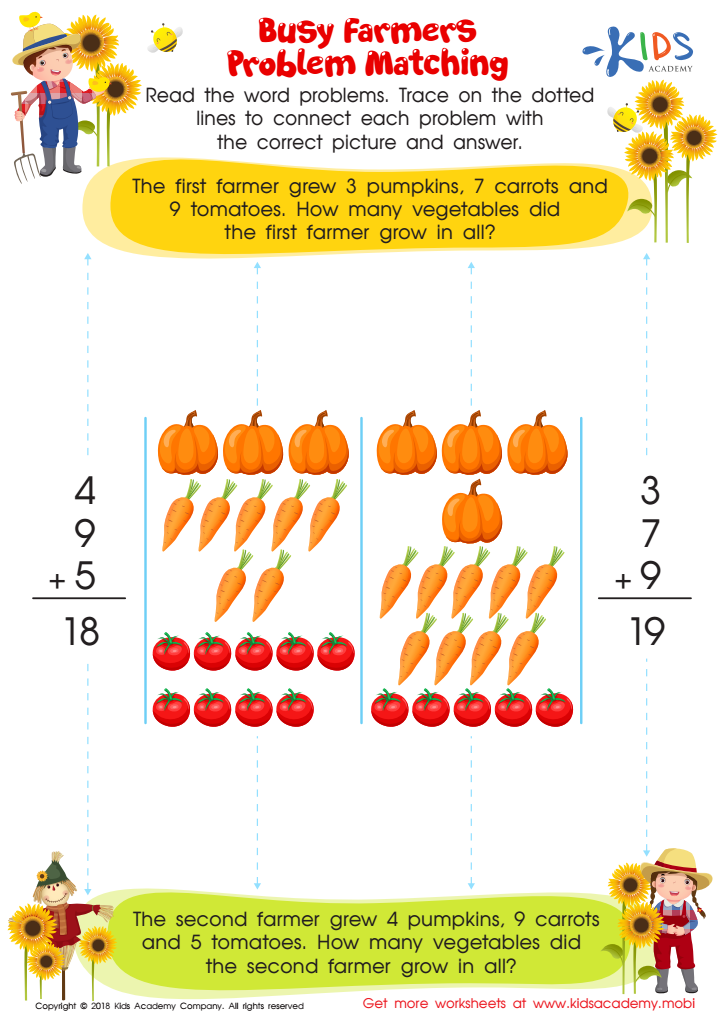

Busy Farmers: Problem Matching Worksheet
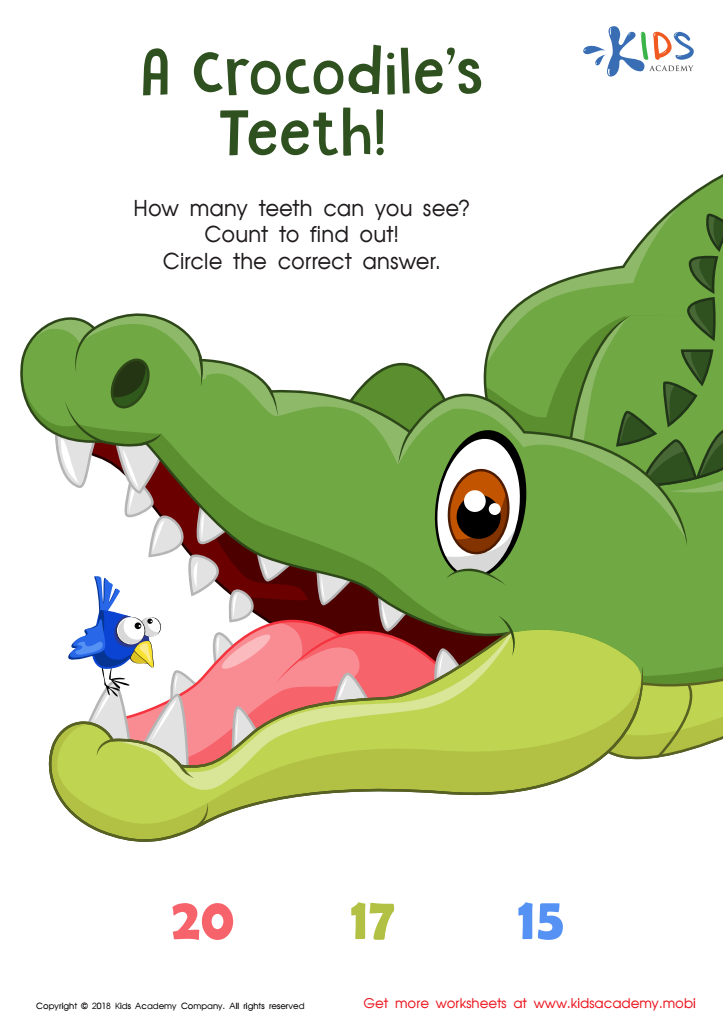

A Crocodile's Teeth Worksheet
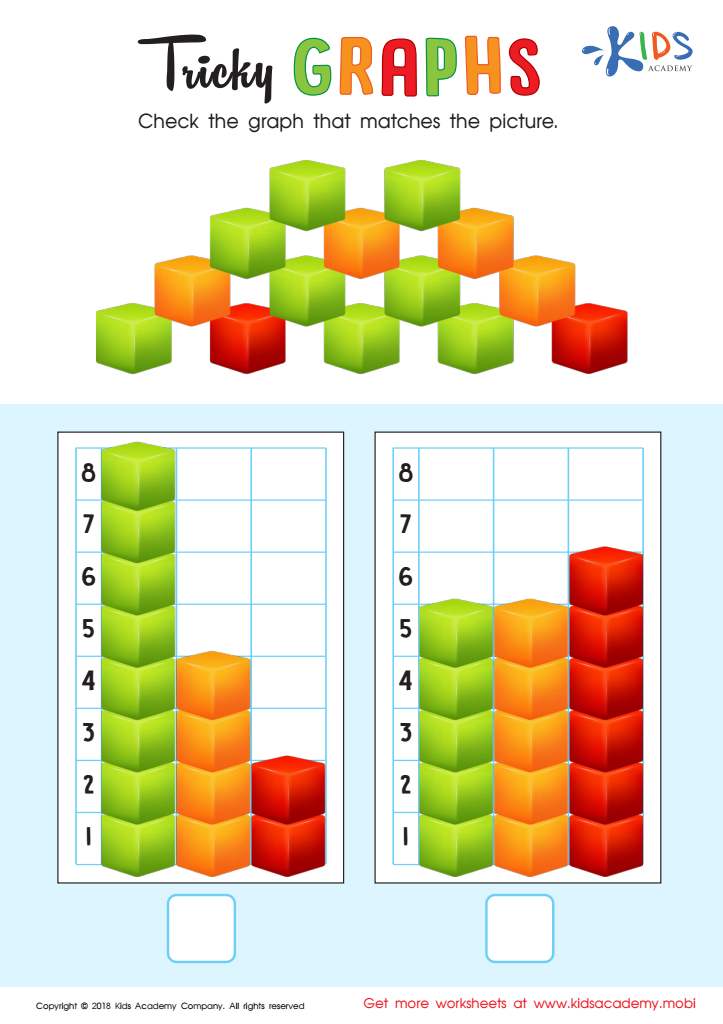

Tricky Graphs Worksheet
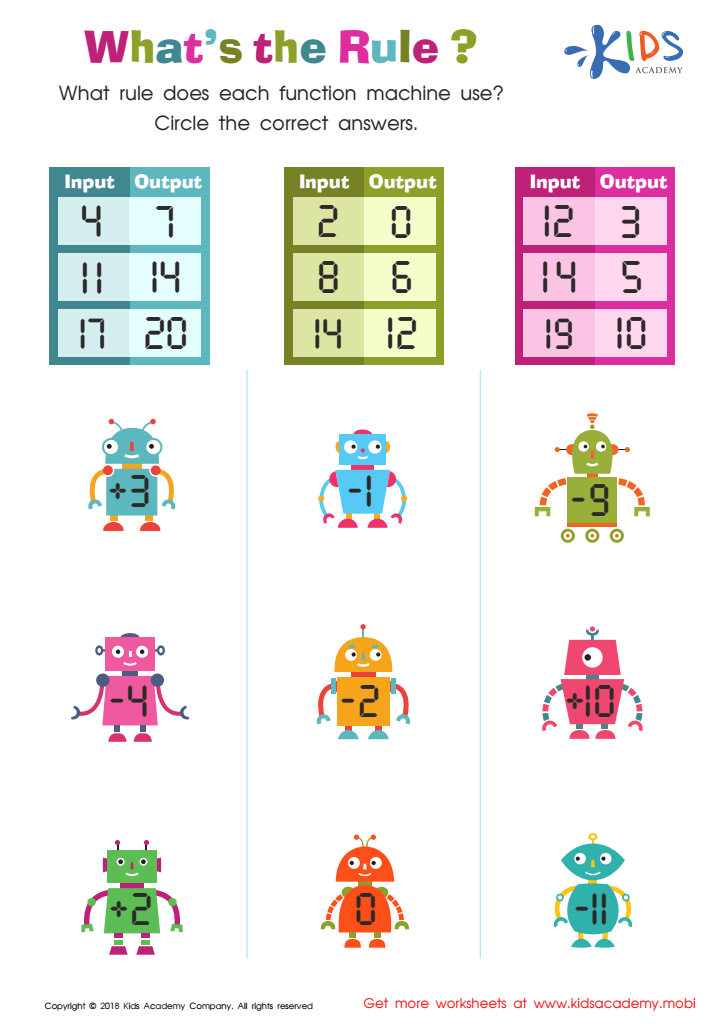

What's the Rule Worksheet
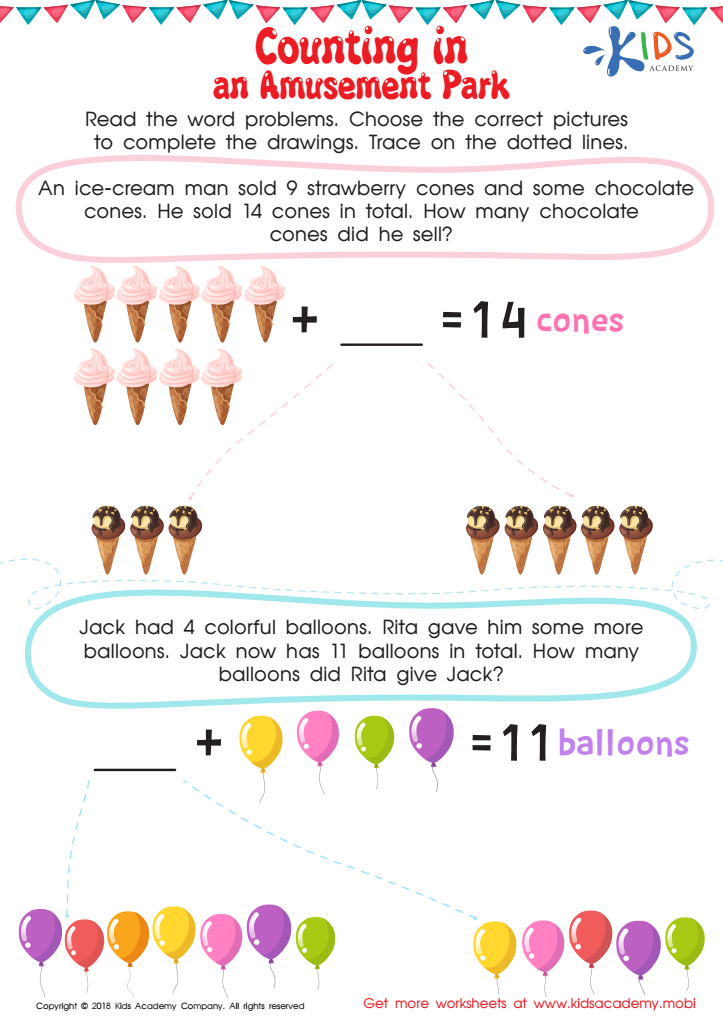

Counting in an Amusement Park Worksheet
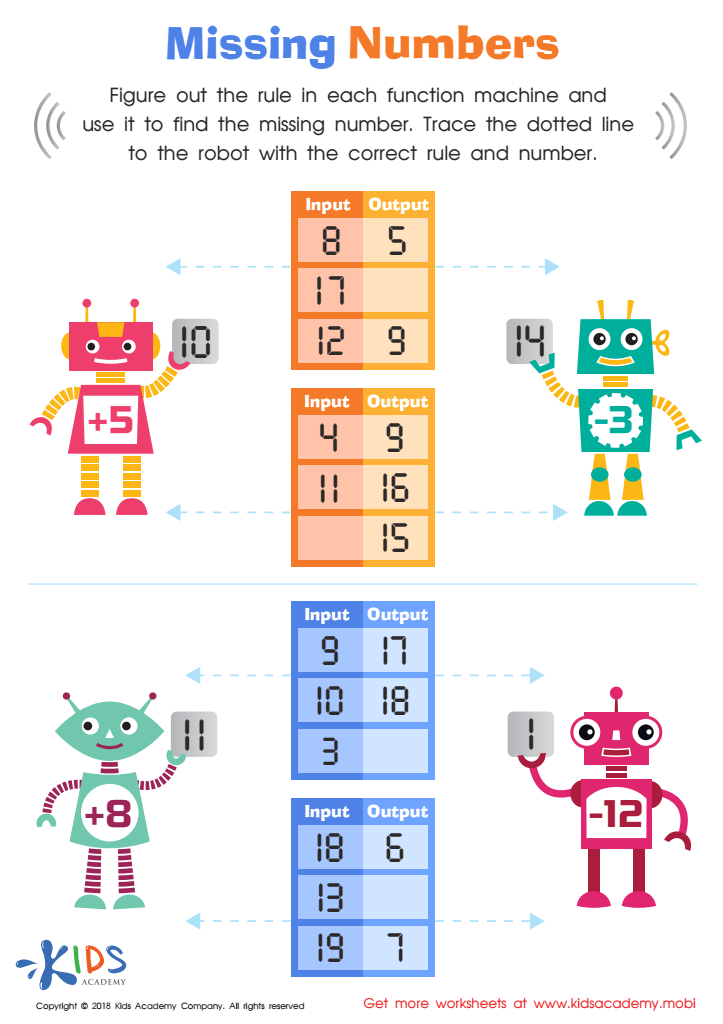

Missing Numbers Worksheet
Mathematical reasoning is a crucial developmental milestone for children aged 4 to 6, making it essential for both parents and teachers to prioritize this area. During these formative years, children begin to make sense of numbers and develop fundamental mathematical concepts, such as counting, recognizing patterns, and understanding basic operations.
Engaging in mathematical reasoning helps young learners build problem-solving skills and encourages logical thinking. As children explore numerical relationships, they gain confidence in their abilities and construct understandings that will serve as a foundation for future mathematical learning. This period is critical for establishing a positive attitude toward mathematics, which can influence a child's academic journey and self-esteem.
Furthermore, strong mathematical reasoning connects to various life skills. It fosters critical thinking, enhances organizational skills, and contributes to decision-making capabilities. By actively participating in their child's mathematical development, parents and teachers can create a supportive environment that encourages curiosity and exploration.
Ultimately, prioritizing mathematical reasoning in early education sets the stage for a successful transition into more complex mathematical concepts in later grades, ensuring that children approach math not with fear, but with enthusiasm and readiness to learn.
 Assign to My Students
Assign to My Students






















